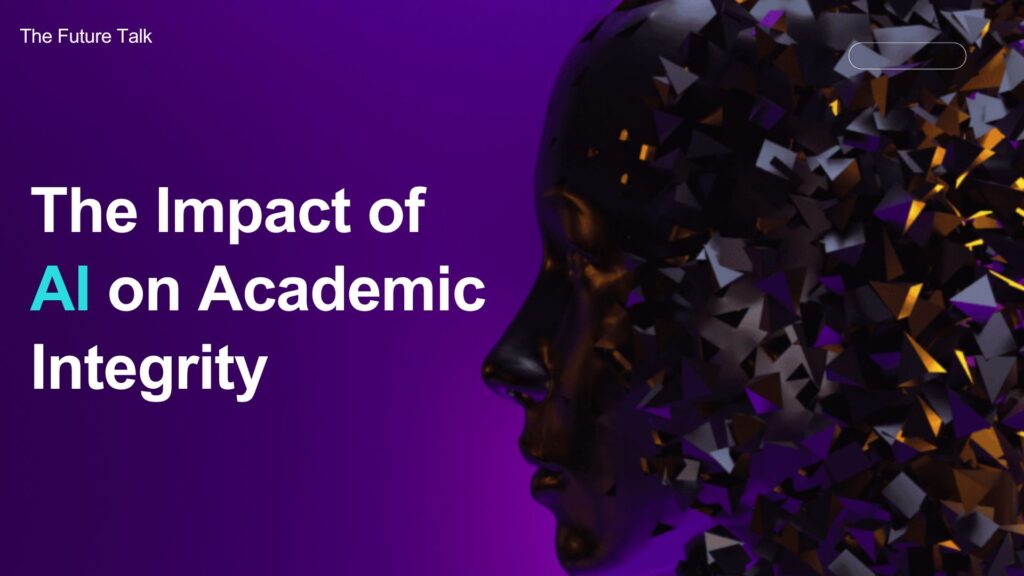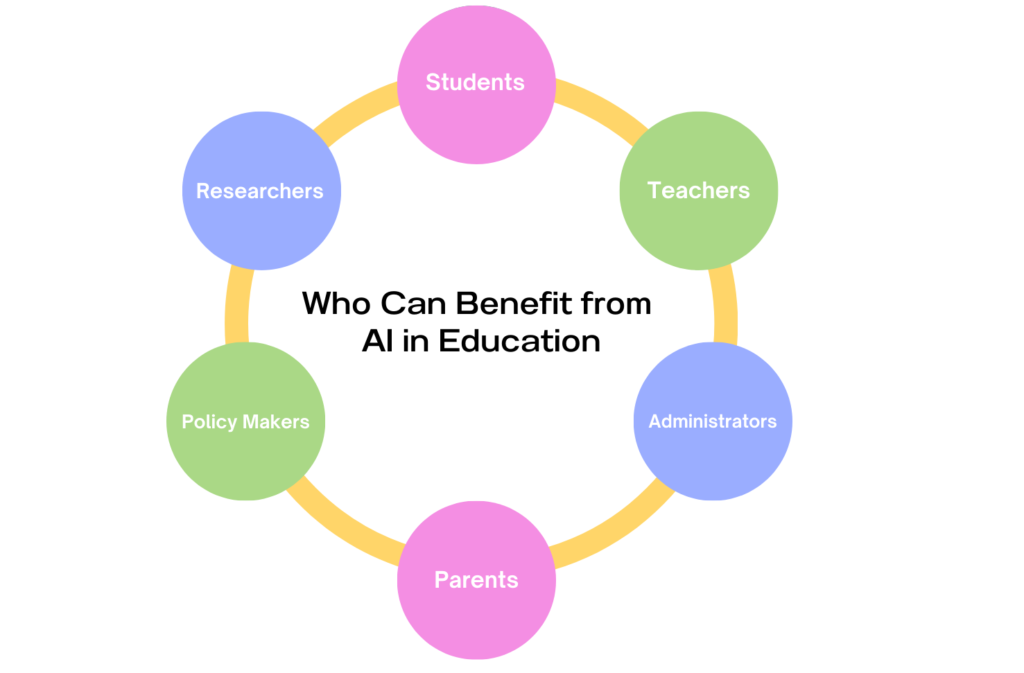Artificial Intelligence (AI) can be a double-edged sword as it positively and negatively impacts academic integrity. With a balanced approach, educational institutions can secure academic integrity and enrich students’ learning experience.

Artificial intelligence (AI) has revolutionized various industries, including education, presenting significant opportunities alongside challenges. These advancements have reimagined the education landscape, raising concerns about their implications.
AI can play a double-edged sword role in academic environments by offering tools to improve learning. It also raises concerns about cheating, plagiarism, and the overall authenticity of scholarly work.
The adoption of AI in education has grown multiple times and its influence on academic integrity is multifaceted. According to a survey of over 850 instructors and 2,000 students by the publishing firm Wiley, around 68% of instructors and 47% of students believe that generative AI could negatively impact academic integrity.
If we look at the market size, the global market of AI in education is predicted to hit US$55.3 billion by 2032. The market is growing from US$3.5 billion in 2023, showcasing significant growth at a CAGR of 35.82% during the forecast period of 2024-2032, according to IMARC Group.

Artificial Intelligence and Academic Integrity
AI has a significant impact on academic integrity, providing instruments to maintain and improve academic standards while also posing new challenges. Let us get started with the impact of AI on academic integrity.
Positive Influences of AI on Academic Integrity
Plagiarism Detection
AI has improved the ability to detect plagiarism. Turnitin, Grammarly, and other tools use advanced algorithms to check submitted work against large databases of academic papers, websites, and other sources. They can identify matching content even if it has been significantly altered, ensuring that students present original work and deterring plagiarism.
With the advent of ChatGPT by OpenAI, we are now witnessing a revolution in impactful content creation. However, it has also flagged the challenge of plagiarism and AI-generated content. TurnItin, In Q2 of 2023, estimated that about 1.5 lakh academic reports out of 13.8 lakh academic reports could be flagged for high levels of AI similarity.
Proctoring and Exam Security
AI-powered proctoring solutions like ProctorU and ExamSoft keep track of students while they take online tests. These systems use artificial intelligence (AI) to monitor video feeds, detect anomalous behavior, and ensure that students do not access any unlawful resources. Facial recognition and keystroke analysis provide extra layers of security, helping in the integrity of the examination process.
Personalized Feedback
AI has the potential to provide pupils with individualized, in-depth feedback on their assignments. The technology can pinpoint areas for development and make recommendations for improvement by evaluating a student’s work. Students are less likely to participate in dishonest behaviors when they receive personalized feedback that enables them to learn from their failures.
Enhanced Academic Research
Researchers can benefit from AI tools by using them to swiftly analyze massive datasets, identify trends, and recommend pertinent literature. This helps them produce original, high-quality research and minimizes the possibility of plagiarism by offering thorough and pertinent sources.
Also Read: How Universities Can Use Blockchain For Higher Education?
Negative Influences of AI on Academic Integrity
AI-Generated Content
AI language models, such as GPT-4, can produce text that is nearly identical to human writing. Misuse of these tools by students could result in them producing reports, essays, and even research papers that they then turn in as original work that was created by AI. This compromises the educational process, which calls into question academic honesty.
Contract Cheating
AI has made it possible for more advanced contract-cheating services. These businesses use artificial intelligence (AI) to finish coursework for students. The value of authentic academic work is undermined and academic integrity is called into question when such services are used.
Automated Cheating Tools
By using AI tools, students can finish tasks and solve difficulties without really knowing the subject matter. AI-enabled apps and calculators, for instance, can provide quick answers, enabling students to submit work that does not adequately demonstrate their comprehension of the material and avoid the learning process.
Proctoring Systems Manipulation
Students can manage to get around these systems even with the developments in AI proctoring. Deepfake technology, for example, can be used to trick facial recognition software, enabling students to cheat on tests without anybody noticing.
Strategies to Address AI Challenges in Academic Integrity
In the education sector, academic integrity is faced with both opportunities and challenges as a result of the rapid development of AI technology. To address these challenges, there is a need for a comprehensive strategy. This may include effective use of technology, implementation of policy updates, and fostering a culture of integrity and moral conduct.
Education and Awareness
Academic institutions ought to teach staff and students about the value of academic integrity and the moral application of AI. Responsible use of AI tools can be encouraged and awareness raised through workshops, seminars, and courses on digital literacy and ethics.
Plagiarism Policies
Educational institutions must implement and amend their plagiarism guidelines to specifically handle content created by AI. What qualifies as original work and when using AI tools in academic projects should be clearly defined.
They should give real-world examples and case studies to clarify what plagiarism is and how to stay away from it. With this practice, students can gain a deeper understanding of the consequences of academic dishonesty.
Improved AI Detection Tools
Academia needs to invest in cutting-edge AI detection tools that can distinguish between AI-powered content and complex instances of plagiarism. To stay up with the rapid advancement of AI technologies, these tools need to be updated regularly.
Promoting Authentic Assessments
Educators can design tests that call for creativity, critical thinking, and the practical application of knowledge. This makes it difficult for students to rely solely on content produced by artificial intelligence. Collaborative work, oral assessments, and project-based learning are some effective ways to encourage real learning.
Continuous Monitoring and Improvement
Educational institutions must keep a close eye on how well their procedures and policies on academic integrity are working. Feedback from instructors and students can help them find areas that need work and make sure that policies are still applicable and efficient.
Also Read: How Can Virtual AI Tutors Transform Teaching and Learning?
The Bottom Line
AI can be a revolutionary technology for education. It has both positive and negative influences on academic integrity. However, with a proactive and comprehensive approach, educational institutions can foster a culture of transparency, honesty, and ethical behavior in students, enriching their learning experiences while preserving the core values of academic integrity.
Stay tuned to The Future Talk for more such interesting insghts.